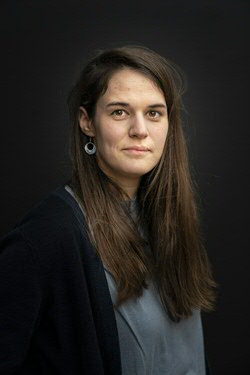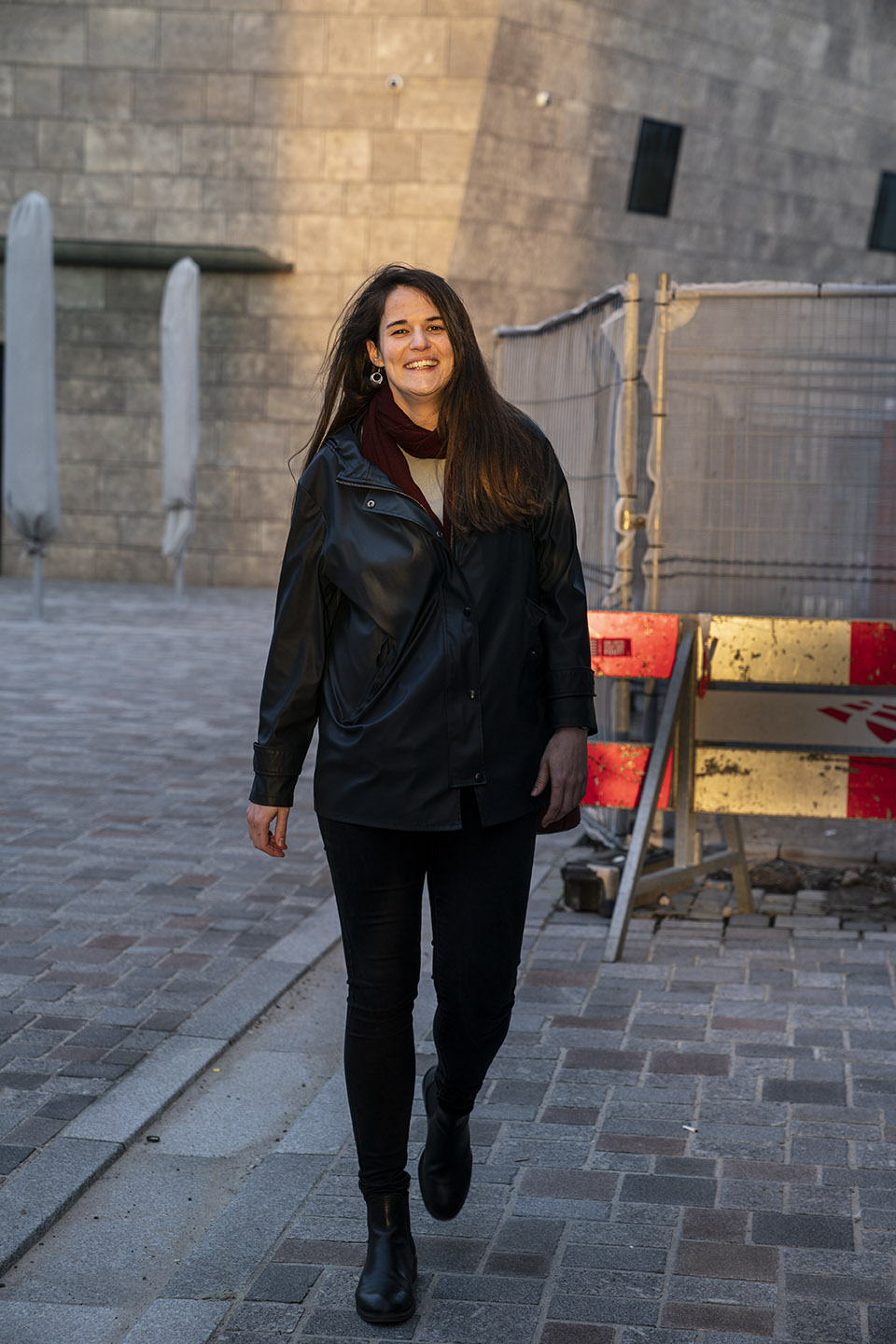Léonie de Jonge appointed member of the KNAW Young Academy

Dr Léonie de Jonge, assistant professor of European Politics and Society at the Faculty of Arts of the University of Groningen, has been appointed as a member of the Young Academy (De Jonge Akademie). The Young Academy is a platform within the Royal Netherlands Academy of Arts and Sciences (KNAW) for early-career, world-class scientists and scholars with an innovative vision on science and scholarship and related policy.
Political scientist Léonie de Jonge (1990) is an internationally renowned expert in the fields of political extremism and populism in Europe. She obtained her PhD from the University of Cambridge (United Kingdom) in 2019 for her research on the success and failure factors of radical right-wing populist parties. In her book, published in 2021, she answers the question of why these parties have been more successful in the Netherlands and Flanders than in Luxembourg and Wallonia.
De Jonge has worked as an assistant professor of European Politics and Society at the Faculty of Arts of the UG since 2019, where she is continuing her research into the emergence and normalization of the radical and extreme political right. A report on research into extremism in the Northern Netherlands, written by De Jonge together with her colleagues Pieter Nanninga and Fleur Valk and commissioned by the Municipality of Groningen, was recently published.
Public debate
In addition to her work as a lecturer and researcher, De Jonge frequently takes part in public debate, both within and outside the Netherlands. She holds lectures and training sessions for a wide range of interested groups—from school pupils to journalists and politicians—to teach them how to recognize extreme right-wing symbols and language. She is regularly approached by the media to explain developments taking place on the right side of the political spectrum.
Young Academy Groningen
In 2021, De Jonge was appointed as a member of the Young Academy Groningen (YAG), within which she is committed to improving social safety in the workplace. Partly due to her efforts, a central reporting point and advisory service has been created for UG staff members who face intimidation and threats. De Jonge is committed to achieving better career opportunities for early-career researchers and lecturers with temporary contracts. In addition, she has put two points for attention on the YAG agenda: academic freedom and the funding models for academic publications.

Member of the KNAW Young Academy
As a member of the KNAW Young Academy, she will tackle these important issues at a national level. ‘My most important motivation to become a member of the Young Academy is the opportunity to change the academic world for the better at a policy level’, says De Jonge.
‘I would like to contribute to better career opportunities for early-career academics and to open for discussion the necessity of flexibility among lecturers and researchers within academia. As a member of the KNAW Young Academy, I would also like to bring about change within the funding models for academic publications—a topic we have been paying attention to within the YAG for a while now.’
Convincing and visible
Prof. Thony Visser, Dean of the Faculty of Arts, is delighted about the appointment of De Jonge. ‘Few academics know how to connect their societal academic research with pertinent issues and discussions within society so convincingly and visibly. Based on the quality of De Jonge’s research and her broad interest and efforts, she will valuably contribute to the work of the KNAW Young Academy.’
About the KNAW Young Academy
Each year, the Young Academy selects 10 new members from a pool of researchers from various disciplines and universities, who obtained their PhD less than 10 years ago. They are appointed as members for five years. The new members will be officially appointed on 28 March 2023.
| Last modified: | 13 December 2022 12.13 p.m. |
More news
-
29 April 2024
Learning to communicate in the operating theatre
The aios operates, the surgeon has the role of supervisor. Three cameras record what happens, aiming to unravel the mechanisms of 'workplace learning'.
-
23 April 2024
Studying depopulation also means studying the history of those who stay
Assistant professor Yuliya Hilevych from the Faculty of Arts researches regional depopulation in the Netherlands, Finland, and Ukraine by placing the phenomenon in a social-historical perspective.
-
22 April 2024
Trump or no trump, that is the question
UG researchers Ritumbra Manuvie, Pieter de Wilde, and Lisa Gaufman look ahead to the elections in India, Europe, and the United States, respectively. This week: Lisa Gaufman.
